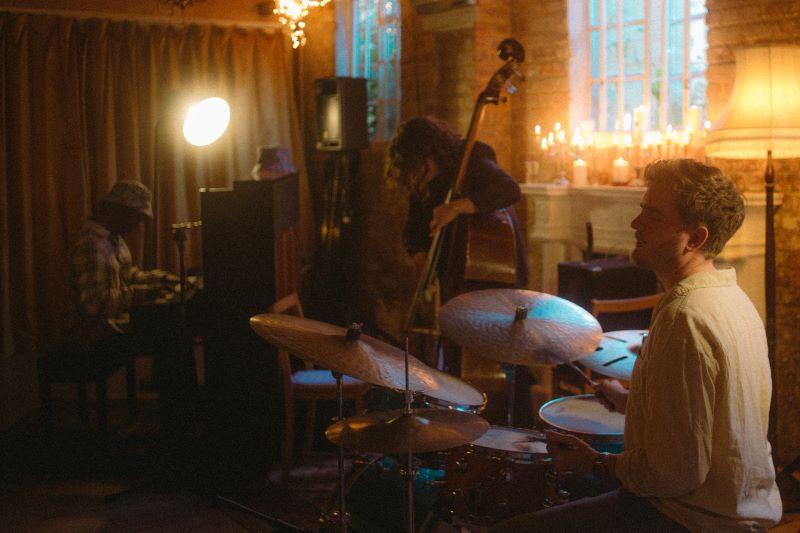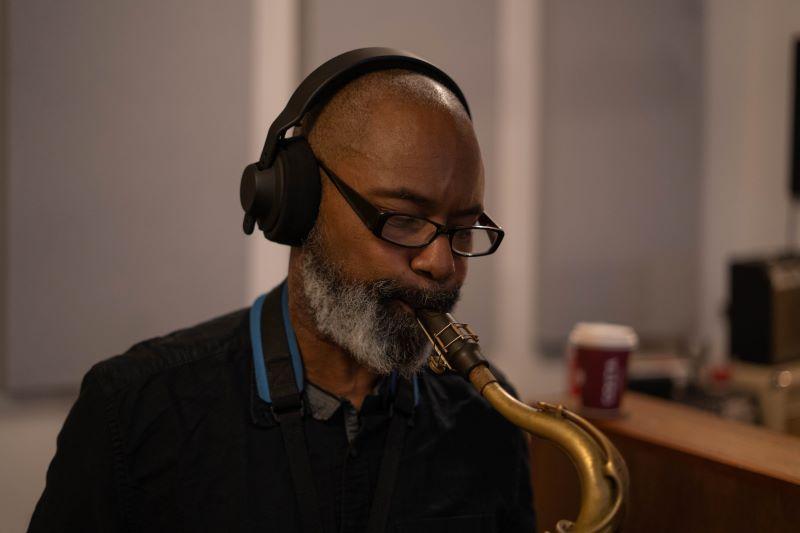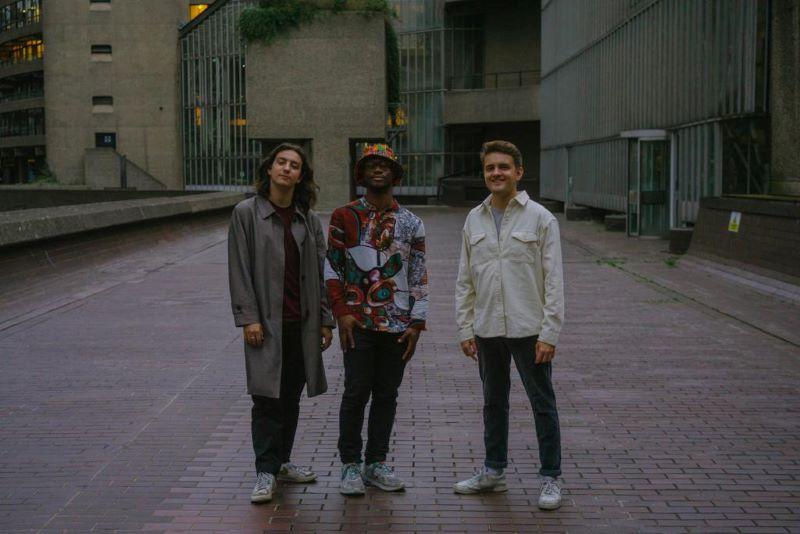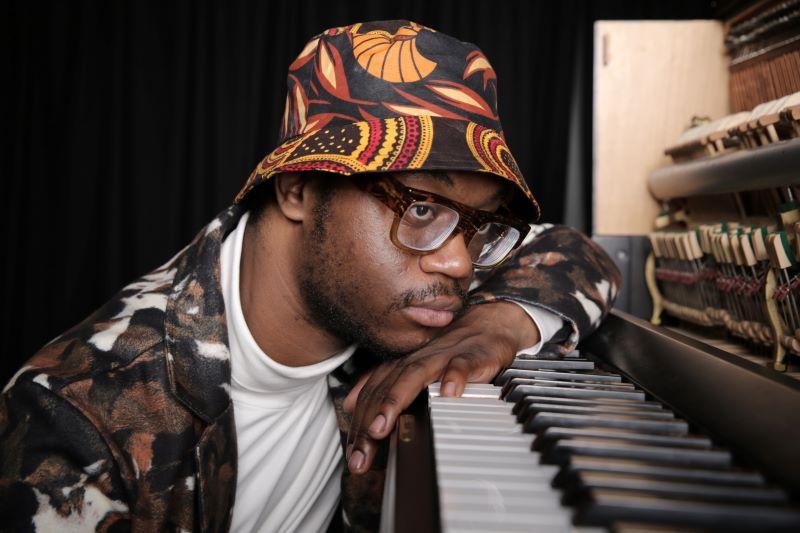It’s been something of a banner year for London-based pianist, composer and bandleader Sultan Stevenson. In addition to a critically acclaimed debut album (“a vivid, dramatic piece of work” according to Jazzwise) and a memorable launch at London’s Jazz Café, there’s been a Parliamentary Jazz Award for Best Newcomer, a return trip to Love Supreme Festival, a performance with the great US trumpeter and composer Charles Tolliver at Church of Sound, plus a first trip to Ireland with this five-date Music Network tour.

Released earlier this year on Whirlwind Recordings, Stevenson’s debut album Faithful One is a fascinatingly constructed collection, full of contrasts: the dramatic call to attention versus benign reflection; impressive textural pile-ups versus unadorned single lines; the distinct musical blocks of the multipartite ‘Guilty By Association’ versus the contemplative stasis of the Mingus-inspired ‘Prayer’. And the way in which the recording is bookended by the ‘Foreword’ and ‘Afterword’ – which seem to exist in a different, slightly otherworldly, sonic plane – suggests that the album has been put together with great attention to detail and a desire to draw the listener in.
“It's kind of a shame nowadays, the way music is consumed over all these various apps and software. When you put on vinyl or a CD, you can listen to it from track one all the way through to the end. Nowadays, you can’t really enjoy that journey. I tried to engineer a journey, hence why it’s bookended and there are reprises on there. The whole thing was meant to be consumed almost like a book or a movie or play, where there's a general story running through it, but each of the songs are self-contained and have their own original meanings.”

Born in Hackney, with Bajan heritage on both sides of his family, Stevenson’s first musical influence was his father, a massive jazz fan who presented his own jazz radio show (Jazz Beat) on Voice of Barbados.
“I don't think I'd be playing if it wasn't for him,” he tells me. But what really kicked it off for Stevenson, as he vividly recalls, was seeing a YouTube clip of the John Coltrane quartet – and the powerful left-hand vamps of pianist McCoy Tyner in particular – performing ‘Afro Blue’ on the 1960s TV show, Jazz Casual.
In addition to Tyner, the way in which another piano-playing great, Geri Allen, amalgamated different elements into her style – gospel, jazz, funk, James Brown, Thelonious Monk – seems an important figure for Stevenson in terms of finding his own voice. “Yeah, massively,” he agrees, “but she came way later, maybe only two or three years ago. She's now one of my favourite pianists. It's more her approach to composition that I really dig – it’s not too formulaic. It's very open, very giving, which is something I try and do. I try and give a lot of freedom.”

After attending the Julian Joseph Jazz Academy in his early teens, where his tutors included Byron Wallen, Toni Kofi, Trevor Watkis and Cleveland Watkiss, Stevenson came into the orbit of the remarkable Tomorrow’s Warriors – the development agency, creative producer, music educator and consultancy which, for the last three decades, has nurtured aspiring young jazz artists in their early careers. He recalls the experience as being “so much fun, hanging out with friends that I still know today. It was an amazing time.”
As well as Stevenson’s special guest on this Music Network tour, tenor saxist Denys Baptiste, other Warriors alumni include Moses Boyd, Binker Golding, Nubya Garcia, Shabaka Hutchings, Soweto Kinch and Ezra Collective – the latter recent winners of the 2023 Mercury Prize and the first jazz artists to win the prize in its 30-year history.
He continued his music studies at the Guildhall School of Music & Drama, where he recently graduated from the jazz piano performance course, during which he attended masterclasses with US artists including bassist Larry Grenadier and drummer Jeff Ballard (two-thirds of the Brad Mehldau trio) plus pianist Danny Grissett.
The presence of Baptiste on the debut album is significant not only for the saxophonist’s incredible musicianship but also for what he represents in the context of Stevenson’s own musical journey. “It highlights that relationship I have with Tomorrow's Warriors. Being part of that programme is a real part of my musical identity, it was a way of honouring that legacy. And also that thing in jazz which has been going on forever – the older generation playing with the younger generation. Denys has so much energy, so much drive. Sometimes it’s really challenging to match his sound and his musical enthusiasm.”

As heard on ‘He Has Made Me Whole’, ‘Thank You, Thank You God’ and ‘Prayer’, the influence of gospel music – the spirit of the music, rather than any specific harmonic or melodic details – seems to be one of the album’s underlying narratives.
“It’s definitely the spirit”, he says. “It's not necessarily the cadences or the stylistic ways that hymns are constructed. I would never call myself a gospel keyboardist, because I think that's a very hard thing to achieve – to really live in that music and be really good at doing that stuff, which is ridiculously hard. But I do love gospel music and I did try – in a very subtle way – to reference that in the album. And I think that's always been a part of jazz music, when you think of John Coltrane and A Love Supreme, it’s the same kind of thing I was trying to explore – that intersection between spirituality, religion and improvisation. Trane really tried to explore that, not only in A Love Supreme – in many of his albums you hear that connection between spirituality and jazz improvisation.”

A tune such as ‘Prayer’ also shows Stevenson to be a composer who, rather than pursuing complexity for its own sake, prefers to keep how the music is going to hit the listener at the forefront of his mind. “The beauty shows itself in the way we play it and in the dynamics of the song. It's not about constructing something that's hard to play, the material itself is very easy – I'm more after the group interplay. I always do my very best to make the music as approachable as humanly possible. I’m trying not to be too flashy or overly academic in the creation of the music. I'm trying to focus more on – can the listener feel a sense of narrative, a sense of tension and release, and a journey, that kind of pathway through the composition.”
In addition to Baptiste, the tour also features the album’s rhythm section of bassist Jacob Gryn and drummer Joel Waters. “We started playing as a trio in 2019 and have built up a really great relationship,” Stevenson notes. “I feel very free, very comfortable playing with those guys. We’ll be playing music mostly from the Faithful One album. We'll also be playing one or two songs from the second album which I recorded back in February. I won't say too much, but it’s hopefully coming out next year. I'm still trying to practise every day – work on my craft and my compositions as well. But also just trying to play very honest music and play with my heroes.”
by Peter Quinn
Sultan Stevenson Trio with special guest Denys Baptiste will be touring to Dublin, Kerry, Cork and Kildare between 24 and 29 October 2023.


